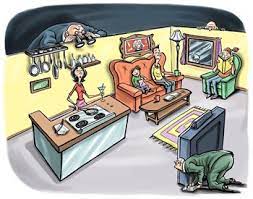 September 2023
September 2023
Rogue condo boards cause insurmountable damage to their communities. Here is one of the many letters received by Toronto Condo News.

I own a unit in a large condo that was built in the 70s. Our board has been run by the same cast of characters for over a decade and a half. During this time there have been rumours and stories.
But now, the board is REALLY taking liberties and out of control.
They have skipped holding elections at our AGM and arbitrarily extended the terms for current directors.
They failed to establish Section 98 agreements and are trying to apply these retroactively.
They are running a $1.2 million dollar deficit in the reserve fund.
They are getting away with all of this because there isn’t a third party we can affordably report them to for enforcement, and it’s extremely difficult to muster all owners to try to hold the board accountable.
The laws are based on an honour system, but the system is easily corrupted and abused.
Other than “get a lawyer” (which we already tried and can’t afford), what is an owner to do???
(Editor’s Note: This letter has been modified to improve clarity after speaking with the author.)
Similar scenarios are becoming increasingly common. In 2020, the Auditor General conducted a review of reserve fund studies that found 69 percent had inadequate amounts set aside and higher contribution amounts averaging 50 percent being necessary. As time passes, this is becoming increasingly clear as communities struggle to deal with a shortage of funds.
While specifics can vary, many communities deal with similar problems. The same people serving as directors for multiple terms can be good or bad. One challenge with directors serving multiple terms can be complacency. It can be easier for directors who prefer not to put the time in to do things correctly to ignore certain laws or rules. They may choose to ignore aspects of the Condo Act or their own governing documents while telling owners this is in their best interest. At some point, owners catch on that there are problems and become aware of earlier errors of governance.
Over time, directors also learn that the easiest way to remain on the board is to avoid anything that causes condo fees to increase. This may include delaying on necessary maintenance or making promises to keep fees low. The community struggles with insufficient funds to maintain the building for many years before a “crisis” occurs.
 As directors become comfortable in their semi-permanent role, they make decisions or choices for their own convenience and find it is easy to ignore “inconvenient” regulations that nobody seems intent on enforcing.
As directors become comfortable in their semi-permanent role, they make decisions or choices for their own convenience and find it is easy to ignore “inconvenient” regulations that nobody seems intent on enforcing.
The Situation
The community in question was built in the 1970s. It comprises over 400 units. Their reserve fund has a deficit of $1.2 million. It would not be surprising to find that condo fees are 50 percent lower than what they should be.
As residents initially moved into the building, many unit owners converted their balconies to sun rooms at their own cost and with permission of the board using an approved contractor and plans. The board has since allowed some owners to remove sections of structural walls to create wider doorways, and disallowed this for others. The corporation is now undertaking a balcony renovation project where they want to remove these sun rooms which is now a pre-existing feature approved by the board.
During the Covid pandemic, the corporation decided not to hold annual general meetings and elections. Terms for directors were extended. Meeting minutes show a deceased director being in attendance at board meetings.
There are many things wrong in this community which appears to be hurtling toward disaster. The most immediate problem is a shortage of funds. There is no choice other than to dramatically increase condo fees, implement a special assessment or consider a condo loan.
Certain issues beyond condo fees should be addressed.
 Governance
Governance
It is clear that much is wrong about how the condo board is operating although much remains unclear. There is no option for failing to hold an annual general meeting, extending the term for individual directors, or falsifying board meeting attendance. These actions suggest a condo board that feels they are above the law. This needs to change before owners can have confidence in the governance of their home and community.
Section 98 Agreement
Outdoor balconies are common elements maintained by the corporation for the private use of owners. Converting them to sun rooms is a change in common elements that required permission of the condo board which was provided. A Section 98 agreement specifies duties and responsibilities of a unit owner and the corporation relating to common element changes by an owner. In the absence of a Section 98 Agreement, the corporation is responsible for maintaining this common area.
It is not typical for a corporation to require a Section 98 agreement relating to a space the corporation previously agreed could be built then maintained by the corporation. Forcing owners to sign this agreement to retain what they currently have could result in extended litigation by owners against the corporation. A better solution would be for the corporation to find a way to retain what exists without placing new demands on individual owners.
Owner Action Needed
The laws are based on an honour system, but the system is easily corrupted and abused
The writer is correct in that “the laws are based on an honour system, but the system is easily corrupted and abused.”
Laws often exist without a clear means of enforcement. When it comes to condominium home ownership, it is expected that owners work together to address problems.
One solution is to have directors removed from office. This involves a process of requisitioning a meeting, removing them from office and electing replacements. Owners must have read the Condo Act to understand their rights and how to proceed. None of this is possible without majority support from owners which can be difficult to obtain if most are unconcerned about actions of the board. Without replacement candidates which are an improvement over those currently in office, results can be disappointing.
An intransigent board may seek to thwart the process or ignore the law. Owners may have to spend time and money to pursue their rights. The Condominium Authority Tribunal can be an option depending on specific infractions and actions.
Finally, owners individually or as a group may choose to secure the services of a lawyer and other professionals as they pursue justice through the court system. This is no different than how they would pursue their rights had they owned a single-family home.
The condominium lifestyle is the preferred choice among those who reside in Toronto. When problems arise, understanding owner rights and being prepared to pursue them is the best approach to a happy, healthy and financially secure community.

Find Vendors in these Related Categories
- Blinds, Shades & Balcony Flooring
- Condo Communications
- Condo Management
- Condo Software - Management Software, Electronic Voting and more
- Consultants and Condo Resources
- Financial Services
- Home Care
- Home Finishing
- Landscaping and Gardening Services
- Legal Services - Condo Law
- Mediation/Arbitration
- Meeting Minutes
- Roofing







